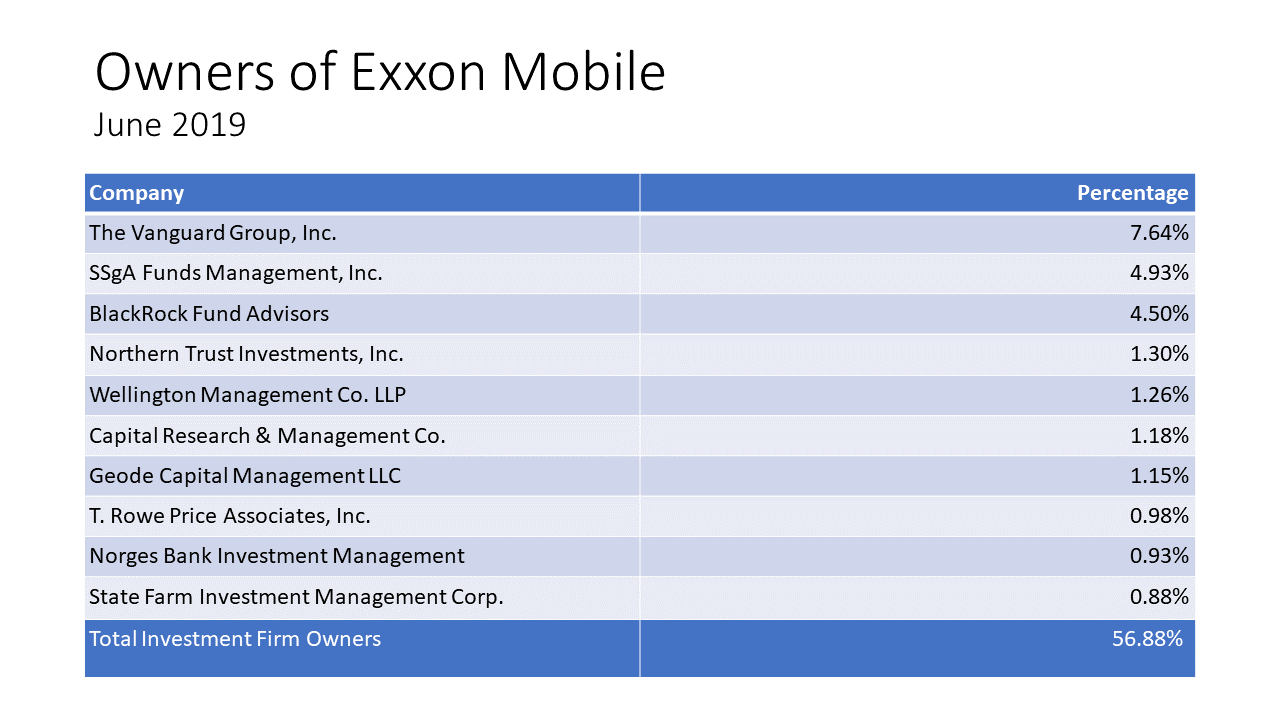Corporate Relationships
The Web of Companies
The petrochemical Industry is made of a gigantic web of companies engaging in many different activities. This web includes oil exploration and extraction, pipelines and rail transport, as well as oil refineries, and petrochemical processing that turns oil into many commodities from plastics to fabrics to cleaning products. Moreover, the petrochemical sector is mostly made up of publicly traded companies, whose stocks are bought and sold on the stock exchange. Thus, there is yet another layer of companies making the petrochemical industry possible: the banks, hedge funds, and other financial institutions who trade, own, and fund fossil fuel related companies.
Therefore, the Imperial Oil Refinery in Sarnia cannot be understood on its own. It is connected to many other companies. While the company started off with sixteen individual owners, today it is a publicly traded company, with many different stock owners that each own a portion of the company, with ExxonMobil owning the largest portion of stock. Just as other companies can own parts of Imperial Oil, Imperial Oil can own parts of other companies.
Corporate Kinships
As one of the oldest and largest oil companies in Canada, Imperial Oil has deep kinships with many other important companies, including Enbridge and Toronto Dominion Bank.
The most important kinship is with ExxonMobil (previously Standard Oil), one of the world’s biggest oil companies and the fourth largest contributor to green house gasses.
In turn, Imperial Oil was a part owner of Interprovincial Pipeline Company established in 1949. This company was tasked with constructing a pipeline (built in 1953) for bringing oil from Alberta to the Sarnia refinery. In 1996 it joined with another Toronto-based company, Consumer Gas, to form the pipeline company now known as Enbridge.
In turn, the Toronto company of Consumer Gas was founded in 1874 and its first president was James Austin, who lived in what is now a Toronto tourist attraction, Spadina House. James Austin was also the president (1871-97) of the Dominion Bank, which would later become the Toronto Dominion Bank (TD Bank).
TD Bank is Canada’s largest bank and one of the top ten biggest North American banks. It has been one of the significant stock owners of both Imperial Oil and Enbridge.
Some of the Corporate Kinships of Imperial Oil
Who Owns Imperial Oil?
As a publicly traded company, the exact owners of Imperial Oil are always shifting slightly. Consistently significant owners are ExxonMobil and large financial investment funds, including TD Assets Management.
ExxonMobil, in turn, is also a publicly traded company, so it too has many owners. Financial investment funds are ExxonMobil’s most prominent stockholders.
Researching Corporate Relationships
Imperial Oil's is tangled with many other companies, and their stockholders are always changing as they are traded on the Toronto Stock Exchange.
More information about Imperial Oil's relationships with other companies can be found at the Corporate Mapping Project, which tracks the Canadian Fossil Fuel sector and is created by a research team at the University of Victoria, provides another view. They have created an interactive graphic to explore Imperial Oil's connections.


